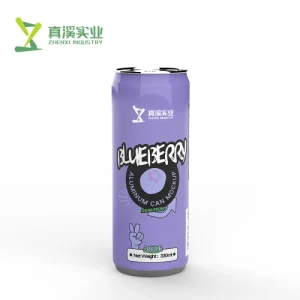One of the biggest consumer-health questions is beer and soda cans leak chemicals. It is important to study the materials and processes used in making these cans so that we understand this can be safe.
Drink cans are made of aluminum, chosen for aluminum's malleability and convenience in addition to its ability to be recycled. Aluminum cans represent 20% of the global beverage container market, according to The Aluminum Association. These cans are lined with some polymer to isolate the aluminium and a beverage as direct contact of aluminum can lead corrosion and leaching into food.
A major concern of chemical leaching from beverage cans was the liner having bisphenol A (BPA). BPA is a chemical that has been used in some plastics and resins since the 1960s, and it (and its health effects) have been studied extensively. Research reveals that BPA can leach into food or beverages from containers made with BPA, and exposure to low doses of this chemical is a risk because it pulls the strings for an array of health effects on the brain and prostate gland as well in fetuses, infants, children.
According to the Food and Drug Administration (FDA), BPA is safe in food at current levels occurring based on hundreds of studies. But there is still enough doubt over its safety that the inside of most food and beverage cans these days are lined with BPA-free plastic. Approximately 91% of can production in North America now utilizes BPA-free liner, a Can Manufacturers Institute survey reported last year. These new linings are generally created from other materials such as polyester, acrylic or various proprietary mixtures with very much less apparent health concerns than BPA.

Aluminum cans are created through a rigorous manufacturing process involving many safety measures and according to standards. One involves making the can, applying the inside coating, then curing it to form a tough liner. During curing, this liner is heated at a temperature of 150 to 200 degrees Celsius for a few minutes in order to bond the lining with aluminum and ensure efficient protection.
Quality control and routine testing are conducted to meet safety standards of beverage cans. EFSA (European Food Safety Authority) and FDA continuously review scientific evidence to update their guidance on a regular basis. In 2020, the EFSA published an evaluation of human exposure to BPA from food contact materials which confirmed once again that our current levels of exposure do not represent a health risk.
However studies worry about possible dangers as well of leeching chemicals from faint new linings. A 2018 study published in the journal Environmental Research did turn up tiny mixes of faster gentler chemicals like BADGE (Bisphenol A diglycidyl ether) byproduct inside certain can linings. But the levels found were below safety thresholds set by regulatory bodies.
Consumers who wish to further reduce their exposure from any potential chemicals in beverage cans can take steps like refraining from keeping cans warm for long periods of time, and avoiding consumption beverages that have damaged or corroded cans.
In general, while there may be a risk of chemical migration from beverage cans. The strict regulation, innovation in can lining technologies and stringent manufacturing environment help reduce this potential hazard significantly. Advances, such as BPA-free linings and ongoing research into alternatives to improve food safety enable Beverage Cans remain a trusted and safe product for consumers.